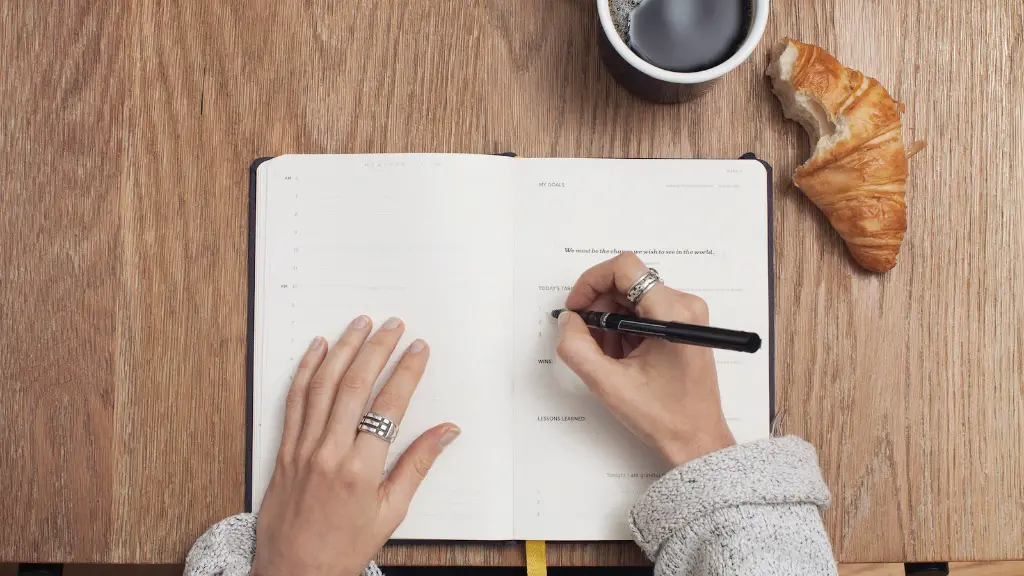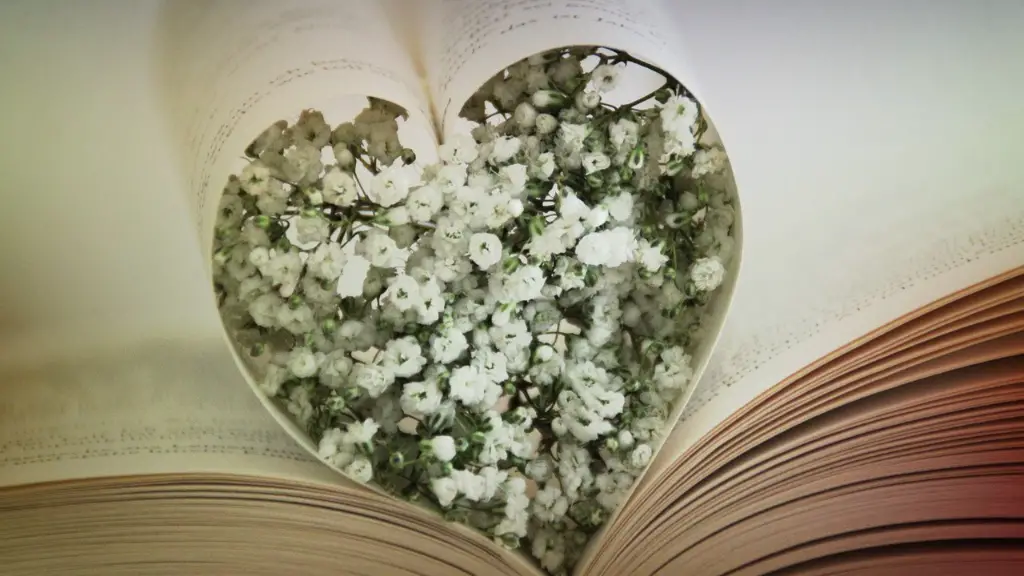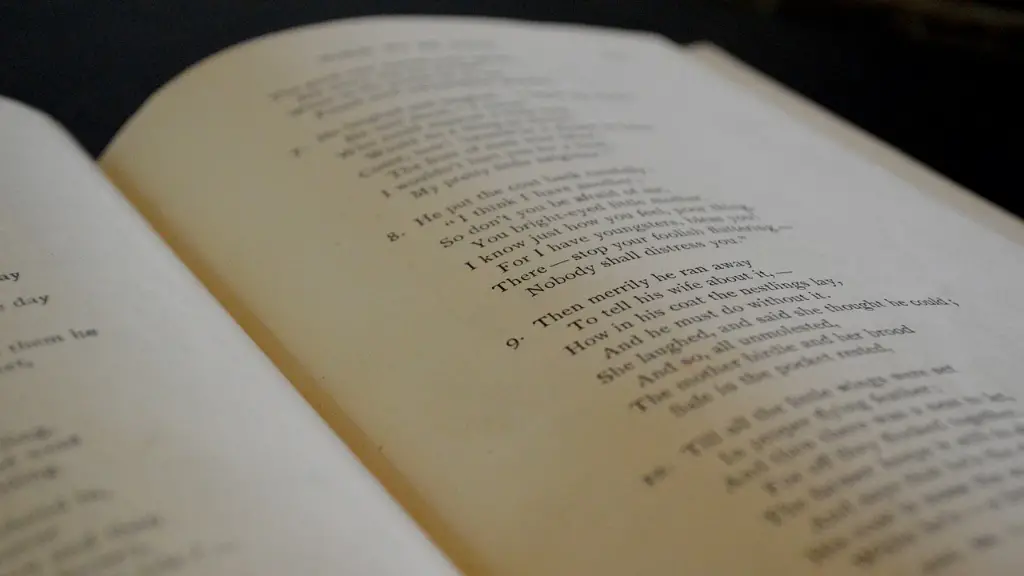Poetry reading is an ancient tradition, dating back thousands of years, of reciting or singing poetry to an audience. It is an excellent way to bring the written word to life through the art of performance. Whether performed in a theatre, a cafe, a school or even in your own living room, poetry readings provide a space for people from all walks of life to share their work, or simply to appreciate and be moved by the words of a stranger.
The art of reciting poetry, or “performing” it, has been celebrated for centuries. Today, wonderfully talented performance poets can energize an audience and get everyone listening to the words and feeling their power. The delivery of a poem has just as much significance as the words themselves; the right cadence, tone and volume can awaken an audience in a way that reading the poem silently may not be able to do. Not only that, but poetry readings can also bring together people from all walks of life who may not always get the opportunity to meet and exchange ideas.
To perform or simply to appreciate a good poem, one must first understand what to look for in a poem. Expert poets always look for rhythm, imagery, metaphor, simile and alliteration. All these elements are part of what makes a poem come alive and can have powerful emotional and cognitive effects on an audience. A poem may also have a context within a larger narrative or the author’s life. It is important to be aware of this when listening to a poem.
When attending a poetry reading, it is important to pay attention to the way the poet conveys the poem to the audience. The delivery of a poem is just as important as the poem itself. A poet’s delivery may vary, and should be appreciated as much as the words. For instance, a thoughtful recitation in a low, slow voice can affect listeners in a different way than a passionate, intense performance. Each performance is unique and should be enjoyed for its own merits.
At poetry readings, it is also important to practice respect and etiquette. This includes being mindful of the fact that a poet is pouring out their heart and soul through their words and should not be interrupted or judged. In addition, it is best to be quiet and attentive to help create a safe and comfortable space for everyone involved.
Benefits of Poetry Reading
Reading and listening to poetry can have many benefits. It is a powerful way to connect our emotions to the written word, to recognize our own feelings and the feelings of others. Poetry readings can help to develop creativity, stimulate the imagination and provide a powerful way to connect with people.
The beauty of poetry readings also lies in the fact that there is a huge variety of poems to experience and appreciate. Different poems have different messages and evoke different emotions; some may be inspiring, while others may be humorous, disturbing or cryptic. Whatever the case may be, poetry can provide a unique and powerful way to explore ideas, feelings and perspectives.
The power of poetry reading lies in its ability to communicate in ways other forms of writing may not be able to. By listening to a poem performed with emotion and passion, an audience is better able to appreciate the words and understand their deeper meaning.
Poetry has the power to create positive change and open conversations, and the more it is shared the more its power can be felt. Poetry readings provide a space for people to come together, share their work and appreciate the work of others in a respectful and safe environment.
Different Types of Poetry Readings
There are numerous types of poetry readings, from traditional-style readings in an auditorium to uncommon settings such as cafes or bars. The variety of different styles can be a great way to learn about poetry and sample different types. Some of the most common types of poetry readings include open mic nights, slam poetry, story slams, haiku performances and spoken word performances.
Open mic nights are generally informal events that are held in bars or cafes and often involve new and un-published poets. This setting is usually relaxed and offers poets the chance to share their work with an audience and receive feedback. They also allow them to also discover the work of other poets in the local area.
On the other hand, slam poetry is a more competitive type of performance. Slam poets read their work to an audience, and the audience judges the performance, scoring each poet on their delivery, the message in their poem and their overall confidence and stage presence.
Story slams are similar to slam poetry but instead involve people telling stories relevant to the theme of the night. This can be a great way to build community and connect stories together to create something greater than each story alone.
Haiku performances are short and intense and often involve a group of poets reading three-lined poems with a 5/7/5 syllable structure. Participants usually perform one by one and continue on to the next in a cycle.
Finally, spoken word performances are usually held in theatres or auditoriums and involve poets performance longer, more detailed and dramatic poems. Performance poetry creates the opportunity for complex emotion and the exploration of ideas that are difficult to express with words alone.
Preparing for Poetry Readings
When a poet is preparing to read their poetry, there are a few things that they should keep in mind. First of all, they should decide which pieces they would like to read and practice them as much as possible until they feel comfortable performing each poem.
It is also important to consider the atmosphere of the event and adjust the performance accordingly. For example, a reading at a cafe might require a more relaxed delivery, while a story slam could require a performance that is more animated and visual. A poet may also choose to wear certain clothing to help evoke the emotion of their works, such as wearing black for a melancholic piece or a bright dress for an uplifting poem.
Most importantly, when preparing for a poetry reading, a poet should focus on the connection between their words and the emotions that they are trying to express. Feelings are powerful and can often move an audience more than the words themselves.
Styles of Poetry Reading
When reading or performing poetry, there is a multitude of different styles to consider. There is everything from vibrant oral performances to more intimate whisper-readings. The purpose of the performance, the nature of the poem and the atmosphere of the event should all influence the style of the reading.
More theatrical performances often involve hand gestures and dramatic expressions and are best suited to longer poems as they offer a sense of continuity. On the other hand, an intimate whisper-reading might be better suited to a poem that needs to be experienced in silence.
Poets may also choose to perform in an operatic or musical style, depending on the mood of the piece. They may also choose to recite a poem in its original language or in a language to which the poem has been translated.
No matter the style of the performance, the most important thing is to practice and feel comfortable expressing one’s poem in a way that will best evoke the feelings within it.
Challenges of Poetry Reading
While hosting or performing at a poetry reading can be immensely rewarding, it is not without its difficulties. Poets may feel intimidated or overwhelmed before a reading, and some may struggle to feel comfortable in the spotlight.
Performing a poem can also be difficult as the poet must consider the rhythm, pauses, tone, speed and emphasis of their words. They must also consider the audience and the atmosphere of the event, and adjust their performance accordingly.
When participants attend a poetry reading, they might feel hesitant or uncertain about how to properly express their thoughts and feelings. It is important for them to take the time to listen to the poem first, to think about what it means to them and to learn how to express these thoughts when the time is right.
Impact of Poetry Reading
Today, poetry readings remain a powerful way to connect with people and create conversations. In a world where communication is often limited to a few words on a screen, it’s important to remember the importance of connecting with people face-to-face.
Poetry readings allow us to come together and create a dialogue. They give people the opportunity to share their work, to be moved by the words of a stranger and to appreciate the beauty of poetry in a safe and welcoming environment.
In our current society, poetry can be a powerful tool for social change, to shed light on important concepts and create spaces for meaningful conversations. Through poetry readings, we can shift from passive consumption to active engagement, and use the power of words to inspire change and connect with people on a deeper level.
Overall, poetry readings are an incredible way to experience poetry in its purest form, with the voice and emotion of the poet underpinning each work. These kinds of readings can spark conversations and open up dialogues, inspiring us to think about our own lives and how we might navigate them in creative ways.





